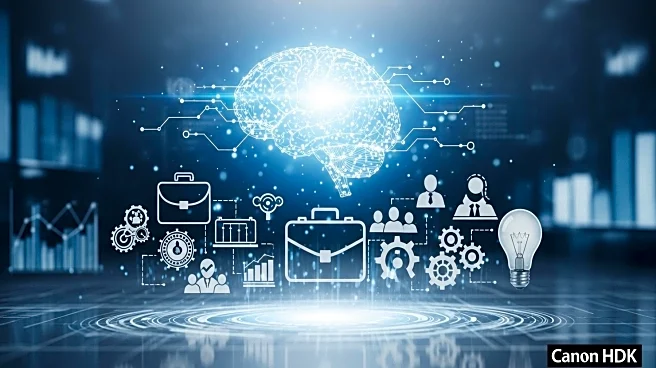What is the story about?
What's Happening?
Stanford University researchers have conducted a large-scale analysis of payroll records to assess the impact of generative AI on employment. The study, titled 'Canaries in the Coal Mine? Six Facts about the Recent Employment Effects of Artificial Intelligence,' reveals significant disruptions in employment, particularly affecting early-career workers aged 22-25 in AI-exposed occupations. Since late 2022, when AI adoption accelerated, these workers have experienced a 13% relative decline in employment. Software engineers and customer service agents are among the occupations most affected. The study highlights a distinction between AI that automates tasks, leading to job losses, and AI that augments human capabilities, which can stabilize or increase employment.
Why It's Important?
The findings underscore the transformative impact of AI on the labor market, particularly for entry-level positions that traditionally serve as career stepping stones. The study suggests that AI primarily replaces codified knowledge, which is easier for AI to replicate, while experienced workers possess tacit knowledge that is harder for AI to mimic. This dynamic could lead to a shift in workforce planning, emphasizing the need for strategies that balance automation with augmentation. The research also indicates that companies are opting for employment cuts rather than wage reductions, highlighting the immediate impact on job availability rather than compensation.
What's Next?
The researchers plan to continue tracking employment trends as AI capabilities advance. The study's insights could inform workforce planning and policy decisions, emphasizing the need for strategies that leverage AI's augmentative potential while mitigating its disruptive effects. Companies may need to focus on reskilling and upskilling their workforce to adapt to AI-driven changes.
Beyond the Headlines
The study raises ethical considerations regarding the displacement of entry-level workers and the potential widening of skills gaps. It also highlights the importance of developing educational and training programs that equip workers with the skills needed to thrive in an AI-augmented workplace.
















